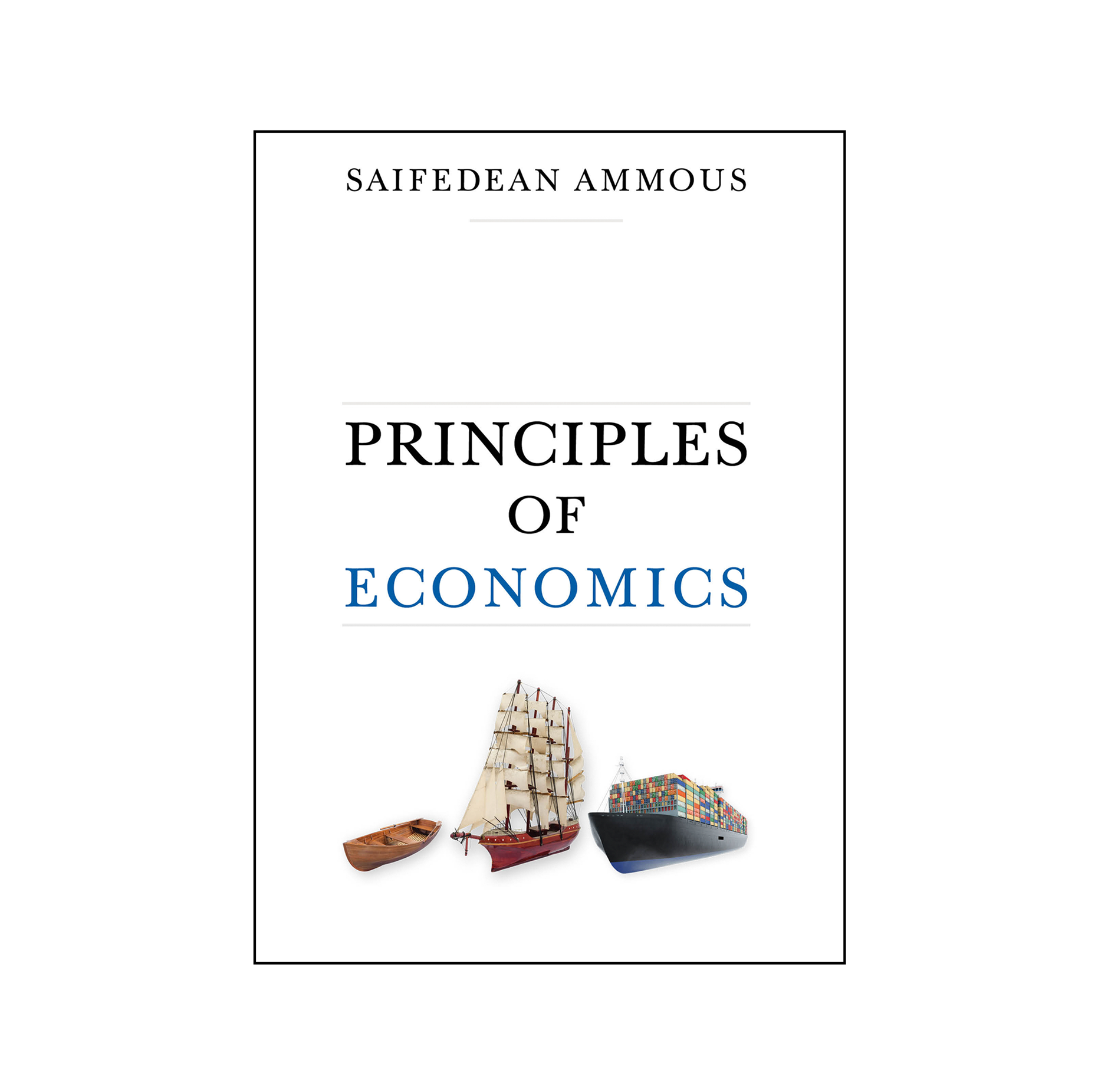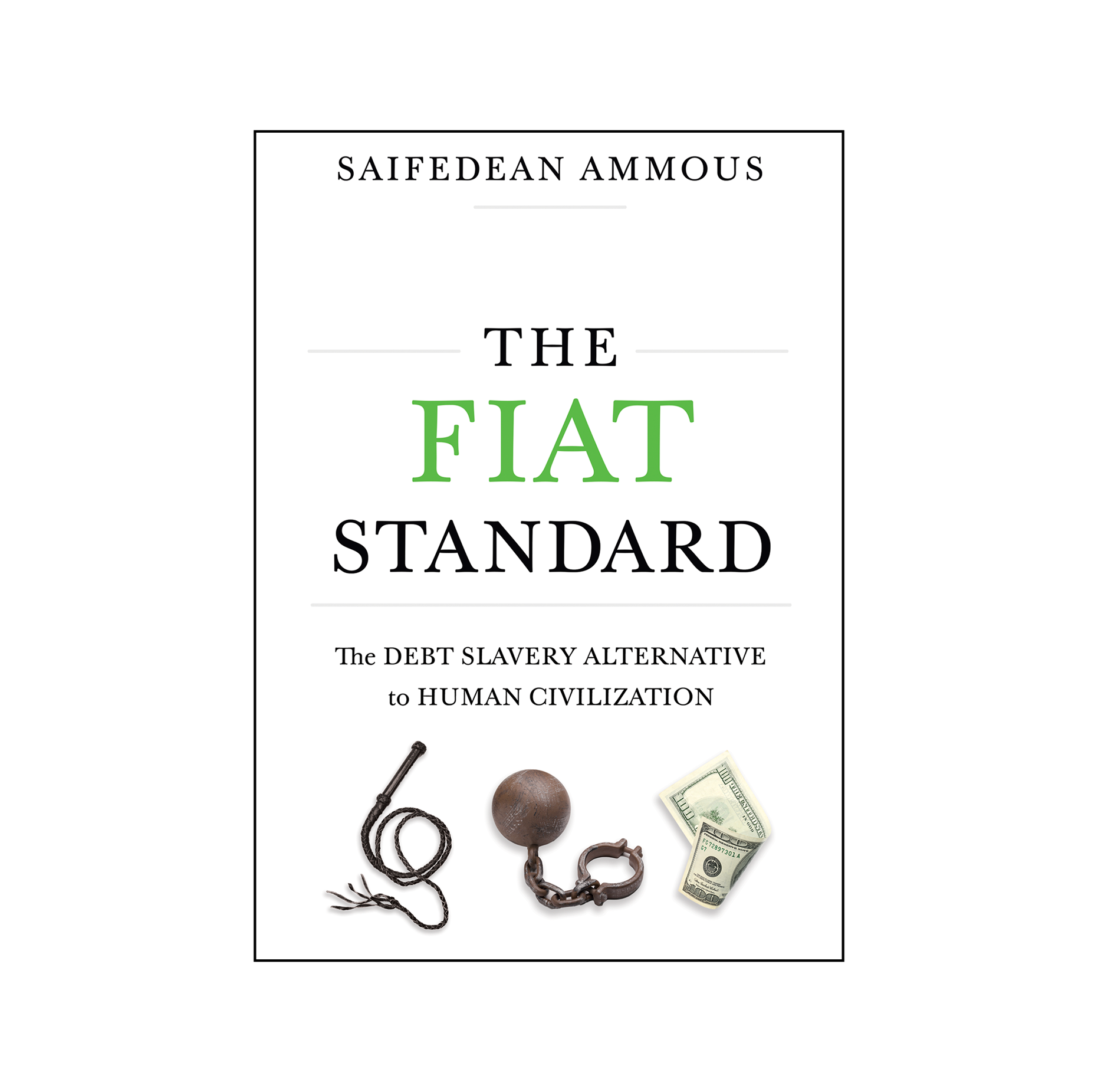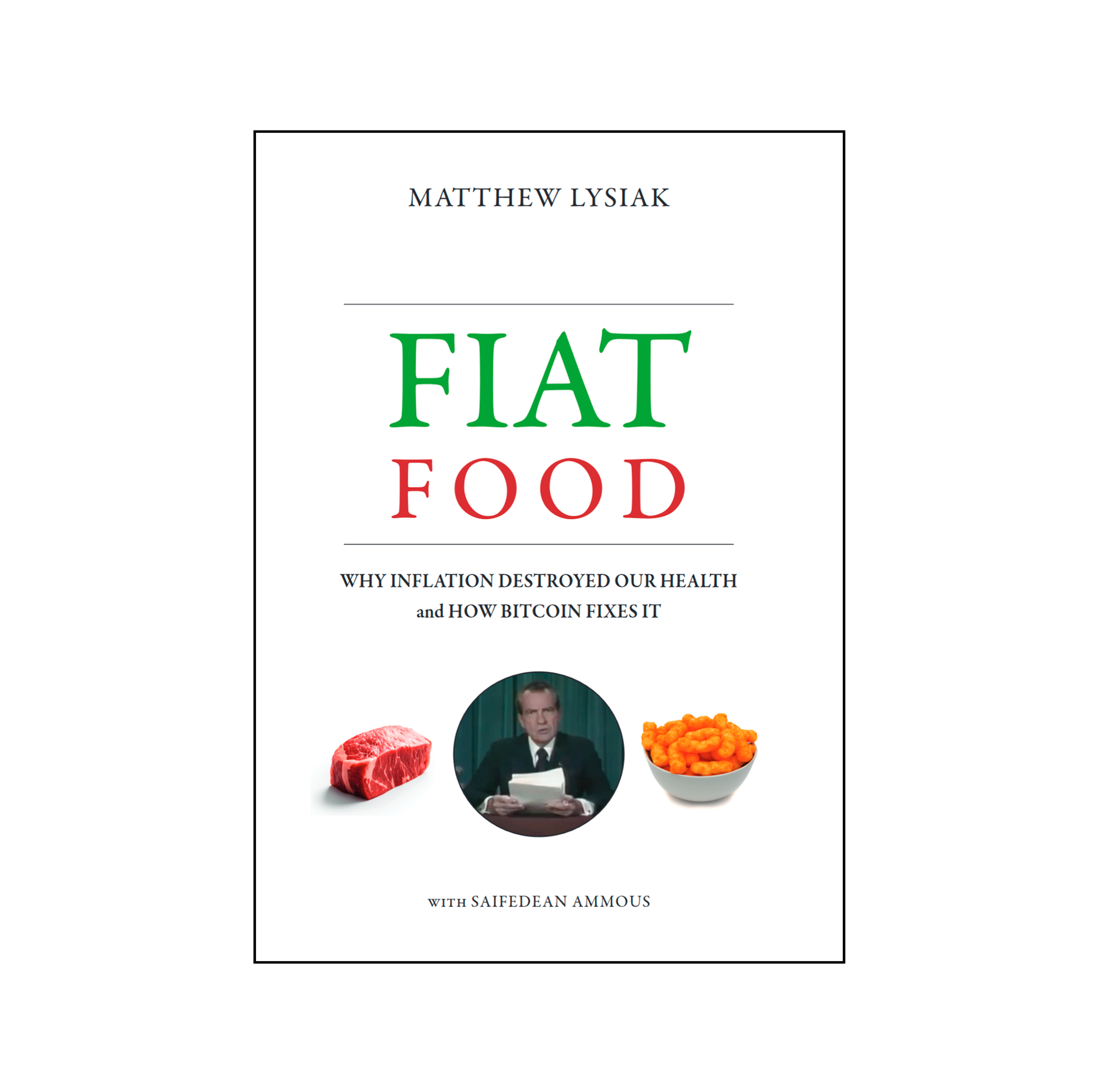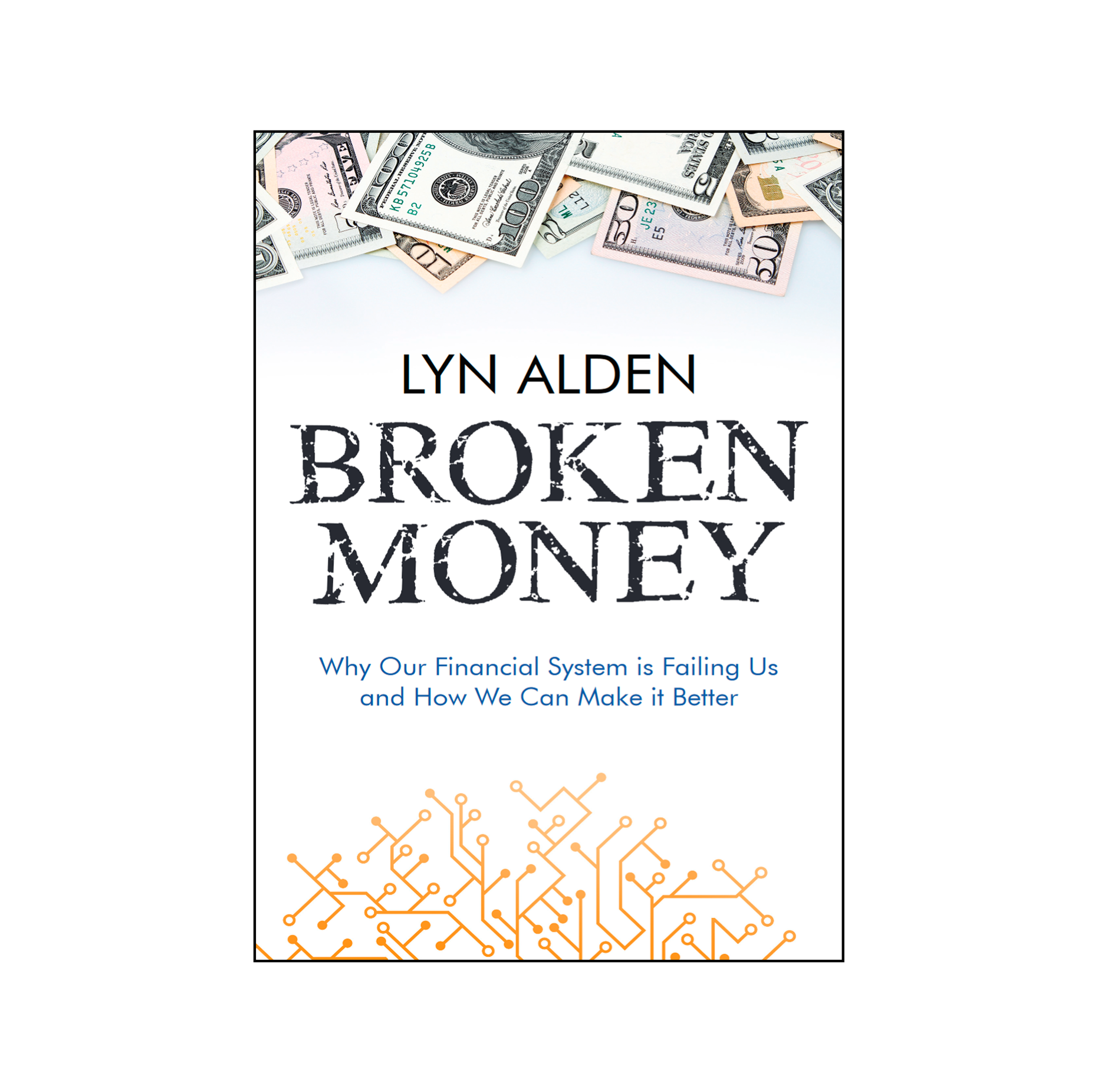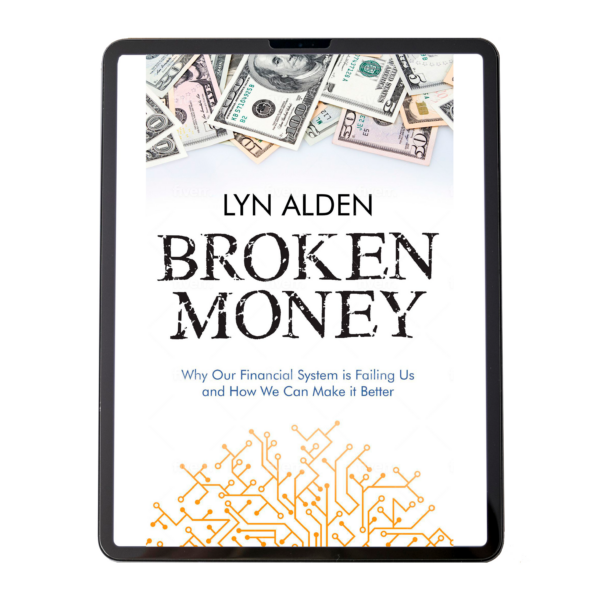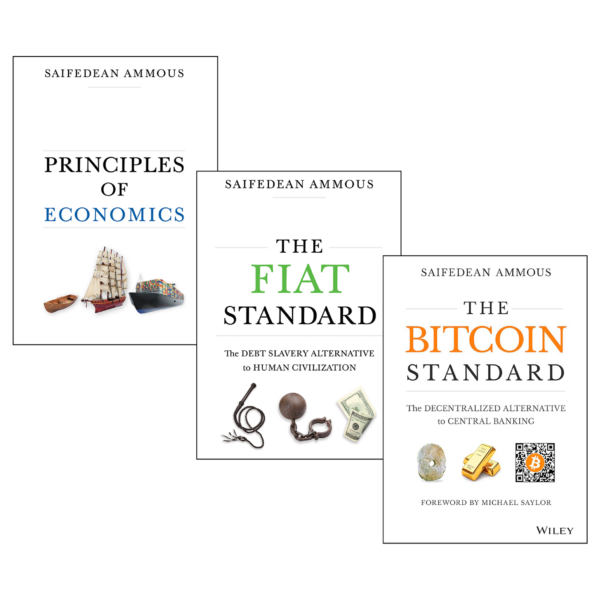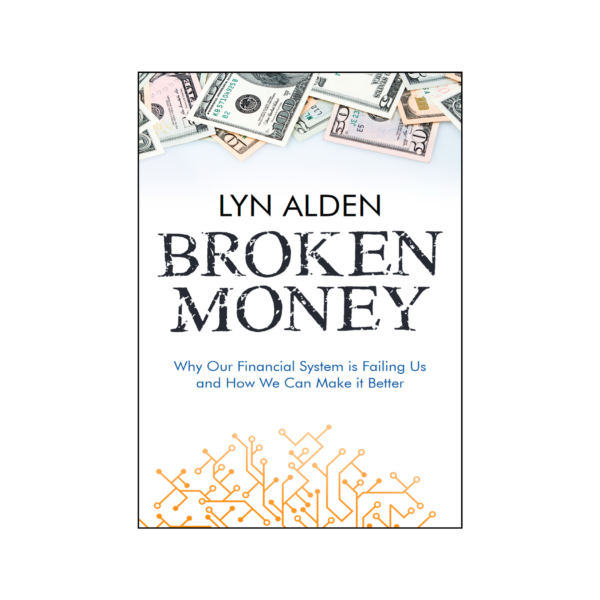Description
Principles of Economics is a university-level textbook offering a comprehensive, engaging, and easy-to-read overview of the field of economics that is valuable to the university student, the general reader, and the professional economist.
Saifedean Ammous’ first book, The Bitcoin Standard, is an international best-seller that has been translated into 36 languages. The book garnered praise from respected scholars, successful entrepreneurs, professional athletes, and countless readers worldwide for its engaging and enlightening presentation of sophisticated economic and technical concepts, delivered in a style accessible to the general reader. With its sequel, The Fiat Standard, Ammous established himself as one of the world’s most effective communicators of economic ideas, whose writing resonates with a growing global readership.
In Principles of Economics, his most ambitious and elaborate work to date, Ammous offers readers a potent antidote to the modern economics textbook. After two decades of learning and teaching economics at university level, Ammous became aware that most economic textbooks confuse more than they illuminate and most university students tasked with reading them learn very little that is useful and actionable. The culmination of four years’ work, this book uses the underappreciated approach of the Austrian school of economics to introduce the principles, methods, and concepts of economics in a readable, engaging, and informative manner. Rather than relying on mathematical analysis of aggregates and arcane theoretical models, the book uses the clear written word to effectively illustrate key economic concepts.
The book first presents the Austrian school method and the foundational concepts of value and time. With these foundations laid, the second part of the book explores how humans act individually to achieve their ends under scarcity—in other words, how humans economize. A chapter is dedicated to detailed overviews of labor, property, capital, technology, and energy, and each topic is accompanied by vivid examples explaining its relevance to the reader. The third part of the book examines economizing in the social context, with chapters examining trade, money, the market order, and capitalism—important concepts that are often shrouded by misconceptions in most modern treatments. The fourth part of the book presents the Austrian perspective on monetary economics, laying the groundwork through a detailed discussion of time preference, followed by a discussion of banking and credit, and the business cycle and its monetary origins. The final section of the book explains why respect for property rights in an extended market order is the basis for human civilization, how the market order protects against aggression, and the failures of monopoly provision of defense.

